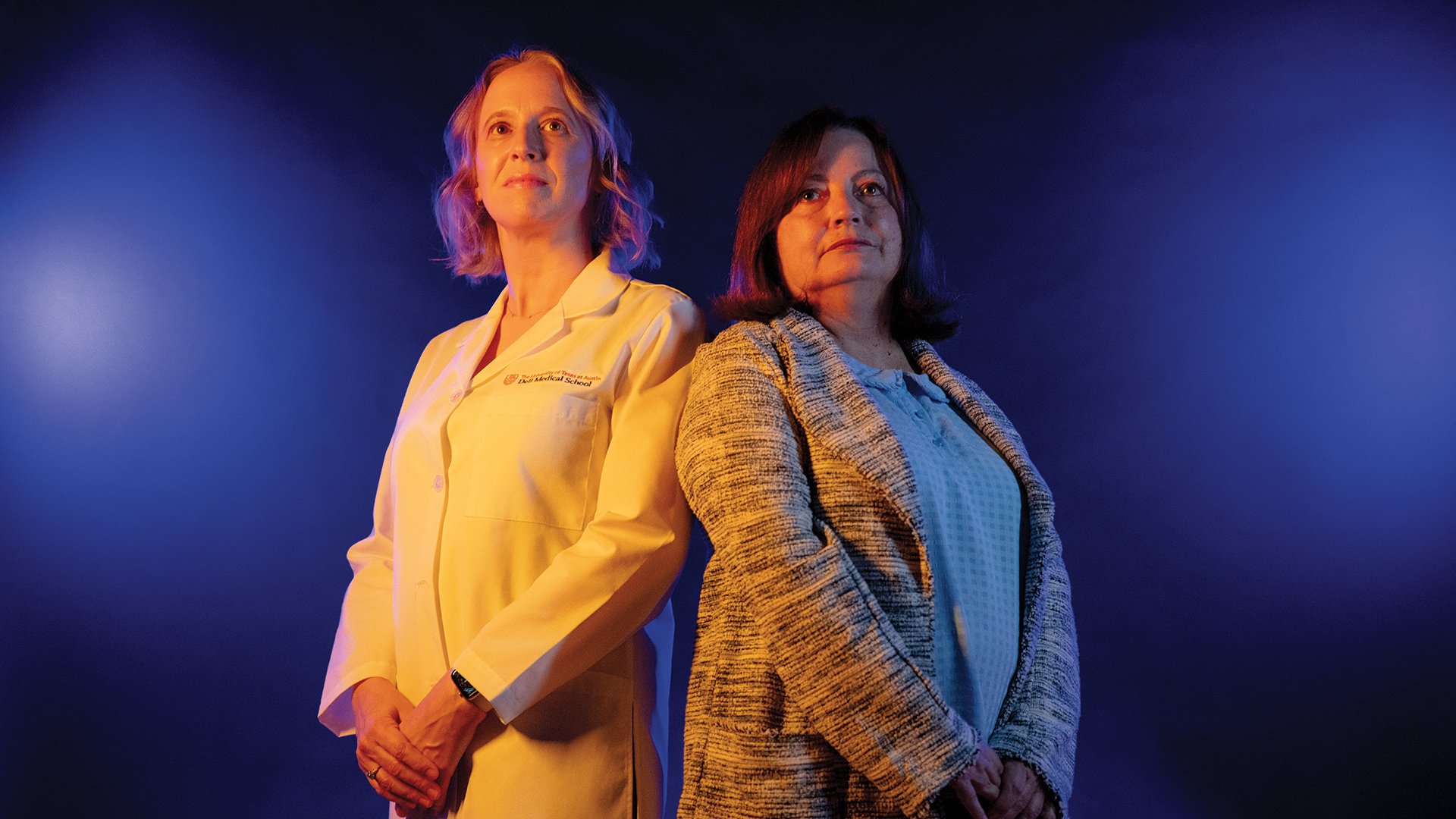
Autism: Lost in Translation No More
Audrey Brumback, M.D., Ph.D., & Sandy Magaña, Ph.D.
For Spanish-speaking families, autism diagnoses are often difficult to attain, leading to crucial delays in care.
With Austin ready to serve as the proving ground for profound impact, a new tool may soon change that.
Autism among Latina/o/x and Spanish-speaking children is underdiagnosed. One reason? Existing diagnostic tools used in the U.S. don’t work when merely translated to Spanish, deepening disparities in access and care: A delayed diagnosis means less valuable time spent accessing key services for improving kids’ well-being.
Looking beyond borders for systemic improvements in autism diagnosis are Sandy Magaña, Ph.D., a professor of autism and neurodevelopmental disabilities at the UT Steve Hicks School of Social Work, and Audrey Brumback, M.D., Ph.D., a physician-scientist specializing in child neurology at Dell Med.
“When ‘gold standard’ assessments are simply translated into Spanish word for word, cultural nuance is lost,” Magaña says. “Even when Spanish-speaking families have access to these tools, the quality isn’t good compared to what it would be for their English-speaking counterparts. The translations don’t elicit the same information. Examples given in English might not at all resonate in Spanish — even the way questions are asked matters.” National Institutes of Health-funded research led by Magaña even found that the discordance can influence reporting of symptoms.
Now, through a pilot study funded by the American Academy of Neurology, Magaña and Brumback are taking what they know about existing U.S. measures and seeing how a successful tool used in Mexico compares.
Importing Innovation
There, researchers created an open-source, Spanish-based assessment that culturally adapts the traditional tests used in English. The result? A shorter diagnostic that helps patients and families more accurately report symptoms of autism. Validated in a large study across Central and South America, more clinicians have been able to administer the assessment, increasing access to diagnosis.
Brumback, who is fluent in Spanish and has a patient population half composed of Spanish speakers, sees enormous potential for autism outcomes in Austin and beyond.
“With positive results, the implications are big,” Brumback says. “General practitioners and neurologists without autism specialization will be able to facilitate the exam, broadening access to an entire population. They’ll be able to follow established interviews and scoring proven to work, growing comfort and confidence in making diagnoses.
“The easier you make the assessment, the easier and quicker kids can access services, therapies and early intervention programs — all of which directly impact their development in life and understanding of communication and behavior.”
